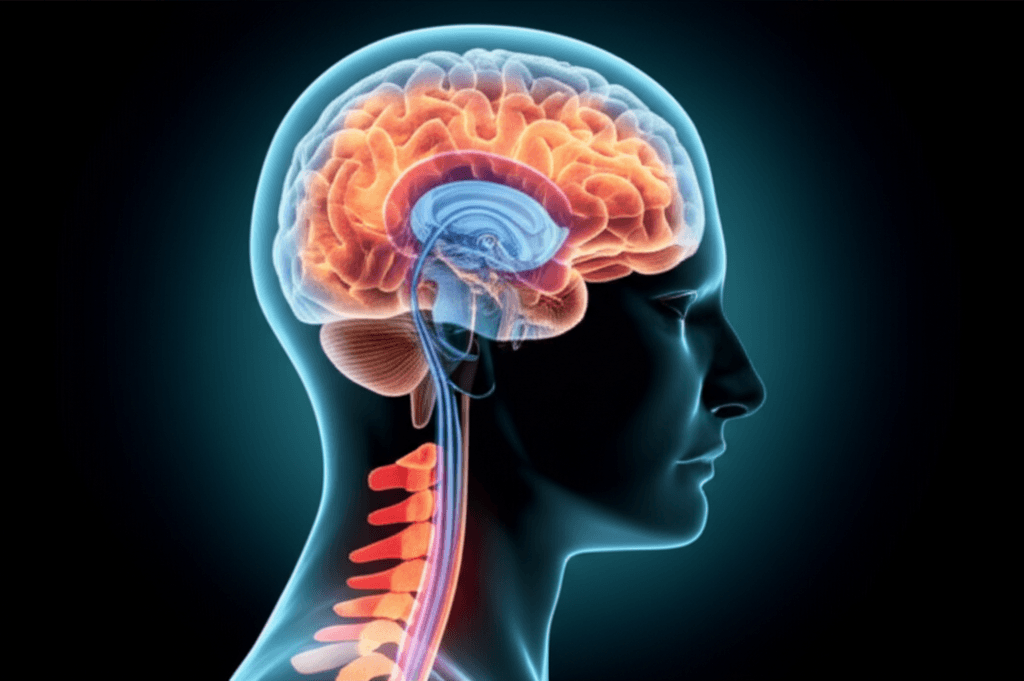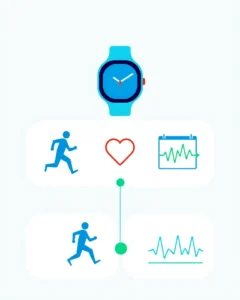The pre-teen years, often referred to as the “tween” stage, are a period of rapid physical, emotional, and social development. Amidst these transformations, a growing body of research highlights a significant and intricate link between a tween’s mental health and their body composition. It’s becoming increasingly clear that how a child’s body is composed—not just their weight, but factors like body fat and lean mass—can profoundly influence their psychological well-being, and vice-versa.

The Intertwined Nature of Physical and Mental Well-being in Tweens
Concerns about mental health in young people are on the rise, and experts are exploring various contributing factors, including physical health metrics. Studies show a clear correlation between aspects of body composition and mental health outcomes in children and adolescents. For example, children with higher weight are more likely to experience emotional and social problems, such as bullying, low self-esteem, and depression, compared to their peers who maintain a healthier weight. This association is not always straightforward, but the evidence points to a compelling connection.

Body Composition Beyond the Scale: BMI, Fat, and Lean Mass
When discussing body composition, it’s essential to look beyond just the number on a scale. Key metrics include Body Mass Index (BMI), body fat percentage, and lean mass.
Body Mass Index (BMI) and Mental Health Indicators
BMI is a widely used measure, categorizing children as underweight, healthy weight, overweight, or obese based on age and sex percentiles. Research consistently shows a correlation between higher BMI categories and increased risks for certain mental health issues. Adolescents who are overweight or obese have a higher risk of depression and anxiety compared to those with a normal weight. Specifically, obese adolescents have shown an even greater risk of depression and anxiety than overweight adolescents. While some studies suggest parental genetics and environmental factors may confound the direct impact of childhood BMI on mood disorders, the association for older children and adolescents appears more significant.
The Role of Body Fat and Lean Mass
Recent groundbreaking research has delved deeper into specific components of body composition:
- Visceral Adipose Tissue (VAT): This is the fat stored deep within the abdominal cavity, surrounding organs. Increased VAT has been significantly linked to heightened anxiety and depression symptoms in preadolescent children. This type of fat can drive systemic inflammation and metabolic dysfunction, both known to impact brain health and emotional regulation.
- Body Fat Percentage: While overall body fat percentage has shown a selective association, it is linked with elevated anxiety symptoms in preadolescents, though not always with depression.
- Lean Mass: Conversely, greater lean mass, which reflects muscle tissue and metabolic health, strongly correlates with a reduction in anxiety and depression symptoms among children. This protective effect may stem from physiological benefits like improved insulin sensitivity, hormonal balance, and inflammatory regulation.
These findings suggest that not all fat is equal in its impact on mental health, and promoting lean mass development could be a crucial part of integrated mental health strategies.

Psychological and Social Impacts on Tween Mental Health
The link between body composition and mental health is often mediated by psychological and social factors.
Body Image and Self-Esteem
Children’s opinions of their bodies can form at a very young age, with some research suggesting body image issues can begin as early as three years old. During the tween years, body image becomes a significant part of self-esteem. Dissatisfaction with one’s body can lead to lower self-esteem, impacting nearly every aspect of a child’s life. Studies indicate that increased BMI in tweens is associated with unhappiness about appearance and lower self-esteem, which in turn predicts emotional and social symptoms like anxiety and depressive symptoms in later adolescence. This issue is prevalent, with poor body image and self-esteem increasing among children and youth, and the negative effects can last throughout a person’s life.
Bullying and Social Stigma
Children with higher weight are more likely to face bullying, teasing, and social stigma from peers. This appearance-based bullying can be highly detrimental, leading to increased anxiety, depression, and a sense of not belonging or being an outcast. Such experiences can lead to greater school absenteeism and overall psychosocial stress. The stigma associated with higher weight can be as damaging as the physical health complications.

Biological Connections: Brain, Hormones, and Inflammation
Beyond social and psychological factors, emerging research points to direct biological connections between body composition and mental health.
Neurological Links
Stanford researchers have found abnormalities in the reward centers of the brains of children and teenagers (ages 9-17) who are both obese and depressed. These young people showed low volumes in the hippocampus and anterior cingulate cortex, brain regions that process rewards. These abnormalities were also linked to their level of insulin resistance, a precursor to diabetes, suggesting a complex interplay of metabolic and neurological factors. This indicates that early-life obesity and depression might be driven by shared abnormalities in brain regions.
Inflammation and Hormonal Imbalance
The presence of visceral fat, as mentioned, can secrete pro-inflammatory cytokines and alter endocrine functions. Chronic inflammation and hormonal imbalances are increasingly recognized as contributors to mood disorders and overall brain health, establishing a physiological pathway through which body composition can influence mental health.

A Two-Way Street: Does Mental Health Influence Body Composition?
The relationship is often bidirectional. While body composition can affect mental health, mental health issues can also influence body composition. Depression in youth, for instance, can lead to a cycle of overeating as a coping mechanism, followed by weight gain, which further exacerbates depressive feelings and can lead to weight-related bullying. A longitudinal study found that mental health disorders in childhood and adolescence can predict excessive weight and body composition parameters like fat mass and fat mass index at 18 years, particularly in females.

Supporting Tween Mental Health and Healthy Body Image
Given this complex interplay, supporting tweens requires a holistic approach that addresses both physical and mental well-being.
Fostering Positive Body Image and Self-Esteem
- Model Self-Acceptance: Parents and caregivers should avoid critical comments about their own or others’ appearance and instead practice gratitude for what their bodies can do.
- Focus on Inner Qualities: Emphasize and praise qualities beyond physical appearance, such as kindness, intelligence, resilience, and problem-solving skills.
- Limit Negative Media Exposure: Encourage tweens to curate their social media feeds, unfollowing accounts that promote unrealistic body ideals or trigger negative thoughts.
- Promote Media Literacy: Help tweens critically evaluate images and messages presented in media, which often depict thinness or muscularity as the standard of beauty and masculinity.
Encouraging Healthy Habits
- Balanced Nutrition: Educate children on healthy food choices and involve them in meal planning and grocery shopping. Emphasize eating a variety of foods for strength and growth, rather than focusing on “diet” foods.
- Regular Physical Activity: Encourage daily activity not just for weight management, but for its health benefits and to help children appreciate what their bodies can do rather than just how they look. Higher cardiorespiratory fitness, independent of body composition, has been significantly associated with lower levels of psychological difficulties in adolescents.
- Adequate Sleep: Ensure tweens get enough sleep, as sleep deprivation can impact both physical and mental health.
Seeking Professional Support
If a tween is struggling with body image issues, low self-esteem, or exhibiting signs of anxiety or depression, it’s crucial to seek professional help. A pediatrician, family physician, or a child and adolescent psychiatrist can provide guidance and develop a comprehensive treatment plan that addresses both physical and emotional needs. This is especially important for children and adolescents experiencing higher weight, as they are at increased risk for mental health problems.
Conclusion
The connection between tween mental health and body composition is multifaceted, involving psychological, social, and biological factors. Recognizing this intricate relationship is the first step toward providing comprehensive support. By fostering positive body image, encouraging healthy lifestyle habits, and seeking timely professional help, parents and caregivers can play a vital role in nurturing both the physical and mental well-being of tweens, helping them navigate this crucial developmental stage with greater resilience and self-confidence.







